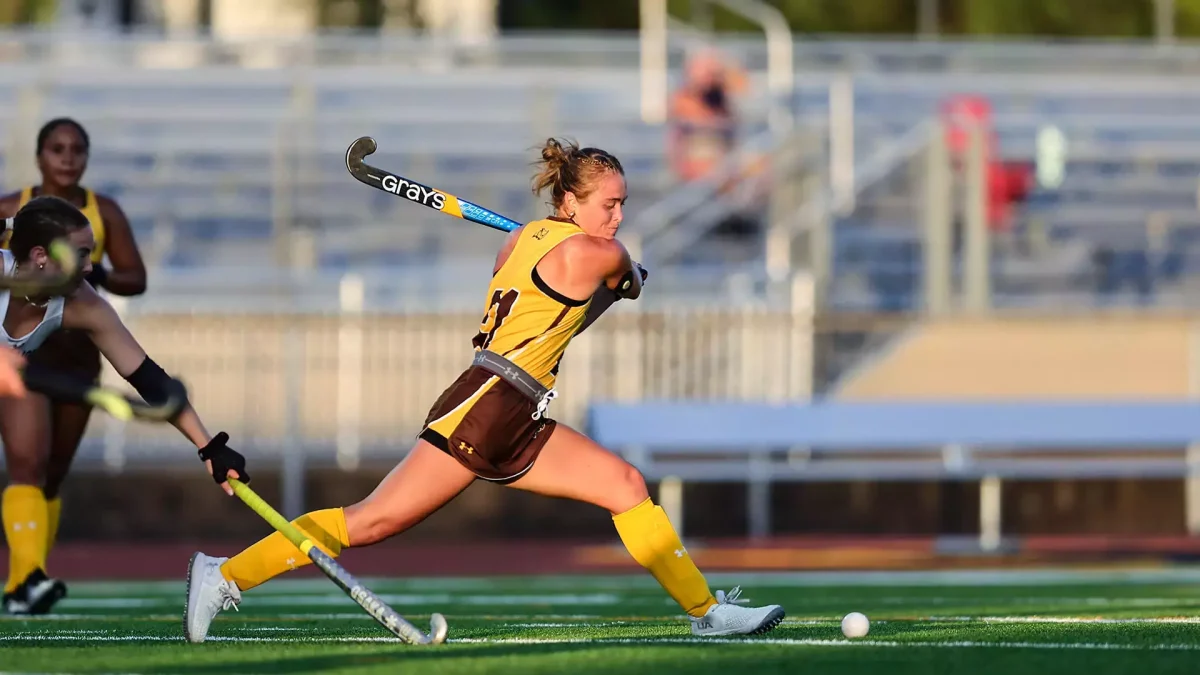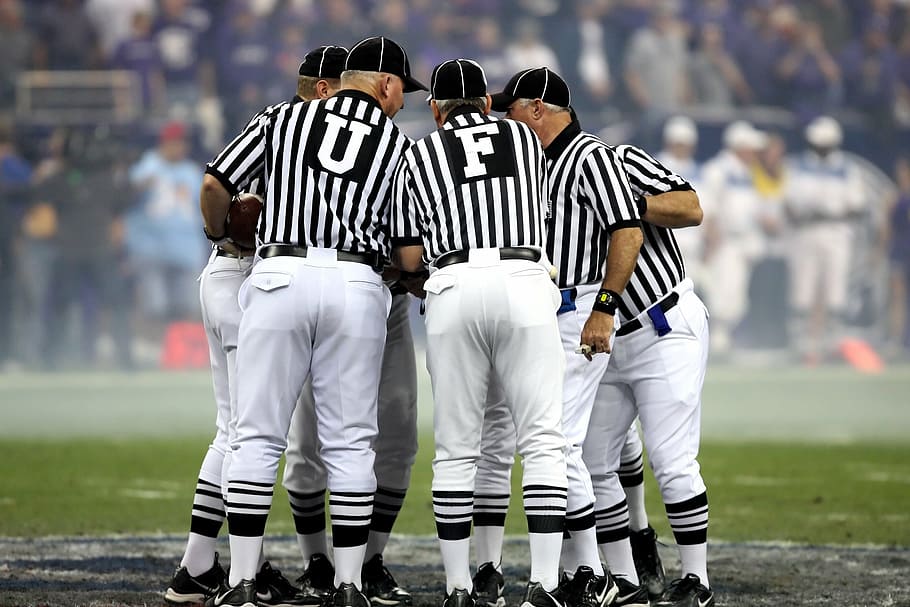Whether you know all there is to know about professional sports or
barely follow, you know that referees play a crucial role in games that
professional athletes play to keep the games fair.
However, where do we draw the line with certain rules? If a play call is enforced for one team, shouldn’t we see that same call for both teams?
Here, I will be analyzing the National Football League (NFL) referee performance from the past four seasons and this current season. It is no surprise that some ref calls are highly suspicious because of how much power they have.
To start off, the first bad ref call I want to talk about is Houston Texans wide receiver (WR) DeAndre Hopkins’ touchdown being reversed versus the Oakland Raiders in 2016.
What happened was the referees said Hopkins was out of bounds, therefore
they reversed the touchdown. This completely altered the course of the
game where the Raiders won 27-20.
Since then, most times if there’s not enough evidence of a player being out of bounds when scoring a touchdown, the touchdown is usually given to them.
The next officiating mistake in the 2016-2017 season was the list of
roughing the passer calls that were missed against the former Carolina Panther’s quarterback (QB) Cam Newton.
Throughout the season, not one ref cared to flag an opposing team for
these calls that were happening against Newton. However, once New England Patriots QB Tom Brady fell into one roughing the passer incident, the rules were completely changed in favor of making sure Brady didn’t have that happen to him again.
This makes me wonder if the NFL genuinely cared to do anything about their concussion controversy.
The 2017-2018 NFL season was no stranger to officiating mistakes
either, with most bad calls being teams versus the Patriots.
First, there’s the “touchdown” in the New York Jets game. Touchdowns in the NFL have had heavy ruling changes throughout the years, so what is considered a touchdown in one year might not be the same in the next.
In the Jets vs. Patriots game, a Jets player was close to the end zone where he spun to catch the ball. Because two Patriots players were gaining on him and wanting to get him out of bounds, the Jets player fell into the pile-on
without having a knee down and lost control of the football.
Technically, a football player can fall into the pylon and still
count for a touchdown. However, you need to have control of the ball,
two feet down and a list of other rules. Despite this, the referees called this a touchdown anyway, driving further confusion into what is considered a legitimate touchdown.
The next touchdown mishap was the Patriots against the Pittsburgh Steelers.
A Steelers player had one knee down before he made it into
the end zone. However, the ball broke the plane into the end zone
which signifies a touchdown anyway.
After much consideration and reviewing of the play – and considering all the rules of what a touchdown is – the Steelers touchdown was overturned and was instead falsely ruled an incomplete pass.
The 2018-2019 season was a harsh year for officiating mistakes during New Orleans Saints games.
Earlier in the season, the Dallas Cowboys had faced the Saints. During one play, a Saints defensive linemen went to stop Cowboys QB Dak Prescott from gaining yards. In the process of doing so, he grabbed Prescott’s face mask.
Usually, this is a penalty. However, the referees dropped the ball on this officiating mistake. After further review, they still missed the blatant call.
However, this seemed to come back on the Saints in one of the most
controversial missed calls in NFL playoff history.
During the Saints and Los Angeles Rams NFC Conference Championship game, the Saints had the ball. As QB Drew Brees went to throw the ball to a receiver, the Rams player not only ran into said receiver, but pushed him out of the way and had helmet-to-helmet contact.
After reviewing the play, there was no penalty on the Rams player for the obvious pass interference.
This lack of a call completely changed the trajectory of the game for the Saints as the Rams won 26-23 and moved on to play in the Super Bowl.
This caused major backlash in the NFL community and serious changes were made following this incident. The NFL continuously makes changes to their rules and regulations to keep from facing controversy. However, they continue to face controversy from changing rules and having refs not utilize them.
During the Philadelphia Eagles-Green Bay Packers game in the fourth week of the 2019-2020 football season, there was another missed pass interference call.
The Eagles player was interfering with the pass against the Packers player
and it was ruled as an incomplete pass with no penalties.
After deliberation, the ruling on the field stood as an incomplete pass, not a
pass interference. The Eagles then took to this advantage and won the
game 34-27.
This officiating mistake is crucial because it really changed the
atmosphere and ultimately the outcome of the game. Had the penalty
been called and enforced, the Packers probably would have either won
the game or gone into overtime.
Like the Saints, the Eagles also faced their own playoff
officiating controversy.
During the Eagles versus Seattle Seahawks wildcard playoffs in January 2020, Eagles QB Carson Wentz took a dirty hit from a former Seahawks defensive end in the first quarter.
There was lots of speculation as to whether this was considered “dirty” or “unintentional”; however, there was helmet-to-helmet contact. In addition, Wentz was already going down so there was no need to further try to tackle him.
The helmet-to-helmet hit in the back of the head – one of the most dangerous places to be hit – could’ve seriously injured Wentz. The referees did not throw a flag or eject the DE Jadeveon Clowney from the game.
However, as inconsistency is a theme among NFL referees, this same incident happened on the Sunday Night Football game on Nov. 15, 2020 with the Ravens versus Patriots.
The Patriots defensive lineman hit Ravens QB Lamar Jackson, and a flag was immediately thrown regarding the hit.
In conclusion, the NFL referees have a hard job. However, in the
position that they’re in, they should not be making silly mistakes that
can put a player in danger or completely alter the outcome of a game.
Their inconsistencies create controversy and more trouble than it’s
worth in a typical pro football game.
Football is a rough and tough sport and trying to keep it as safe as possible is so important for the players and their families. However, the line must be drawn when referees go to extremes to make unnecessary mistakes.
For comments/questions about this story, email [email protected] or tweet @TheWhitOnline.

























































































































































!["Working with [Dr. Lynch] is always a learning experience for me. She is a treasure,” said Thomas. - Staff Writer / Kacie Scibilia](https://thewhitonline.com/wp-content/uploads/2025/04/choir-1-1200x694.jpg)









































